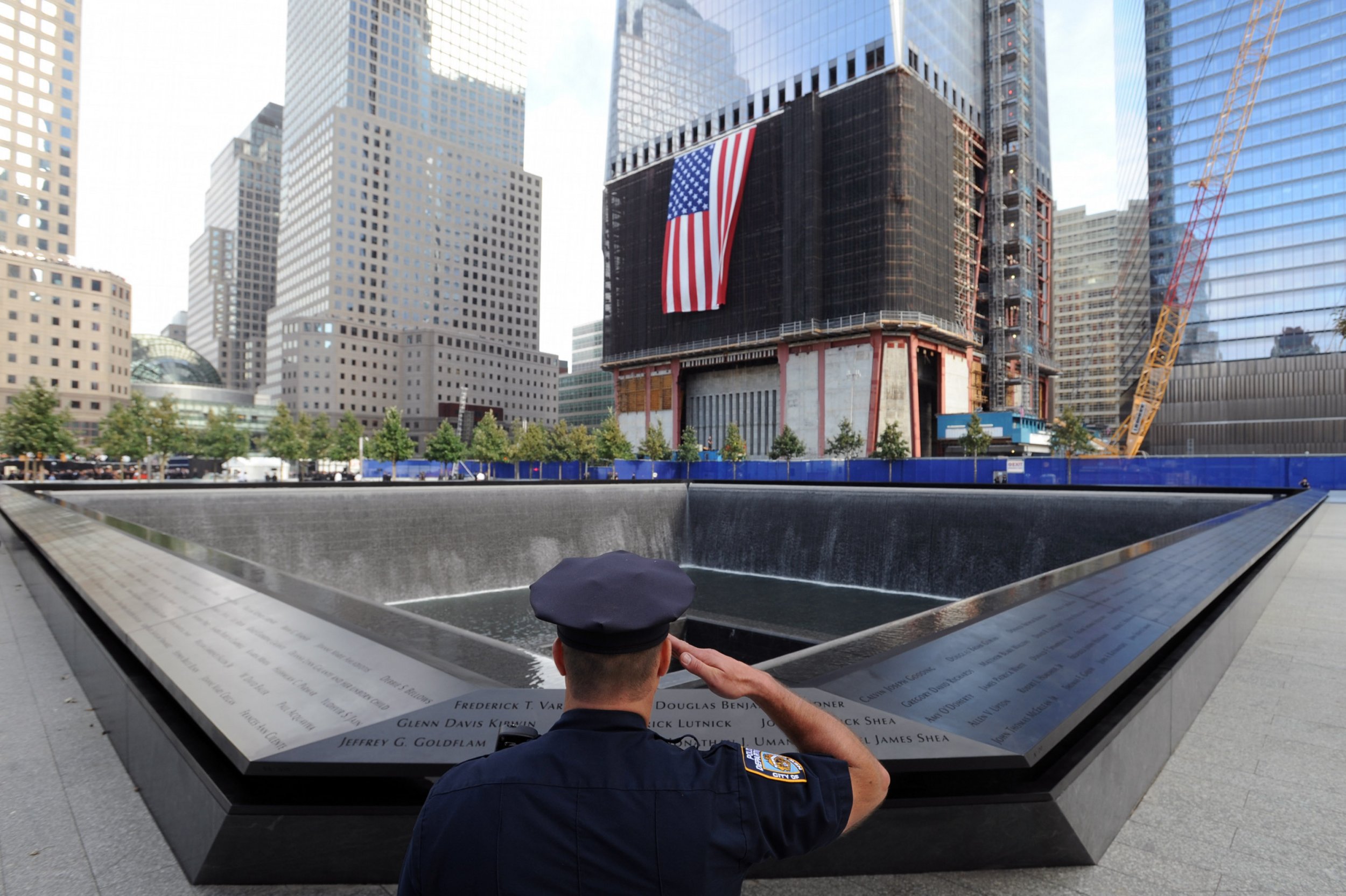
America's overall response to the terror attacks on September 11, 2001, has raised legal, ethical and financial issues over the past 16 years. But have the trillions of dollars and thousands of lives spent on wars, security and entirely new surveillance methods been worth it?
To paraphrase Ronald Reagan: Are we safer now than we were in 2001? The record is mixed, as Newsweek's analysis shows:
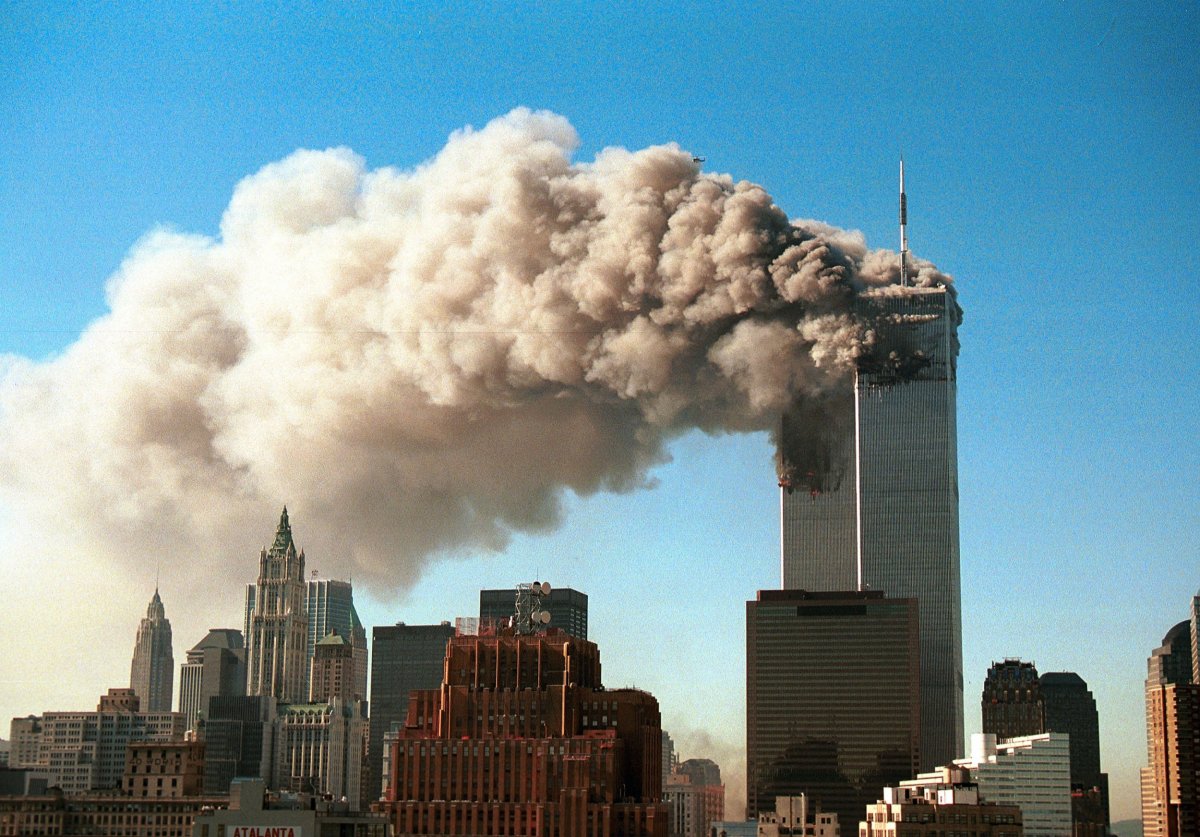
1. Foreign terror on U.S. soil
Since 9/11, there have been no major terror attacks perpetrated by foreigners on U.S. soil.
A great deal of credit can be given to Bush and Obama administration's efforts to strengthen homeland security, creating the Department of Homeland Security and Transportation Security Administration, creating new lines of communication between intelligence agencies that failed to properly coordinate before 9/11, and deeply expanding controversial surveillance through the National Security Agency.
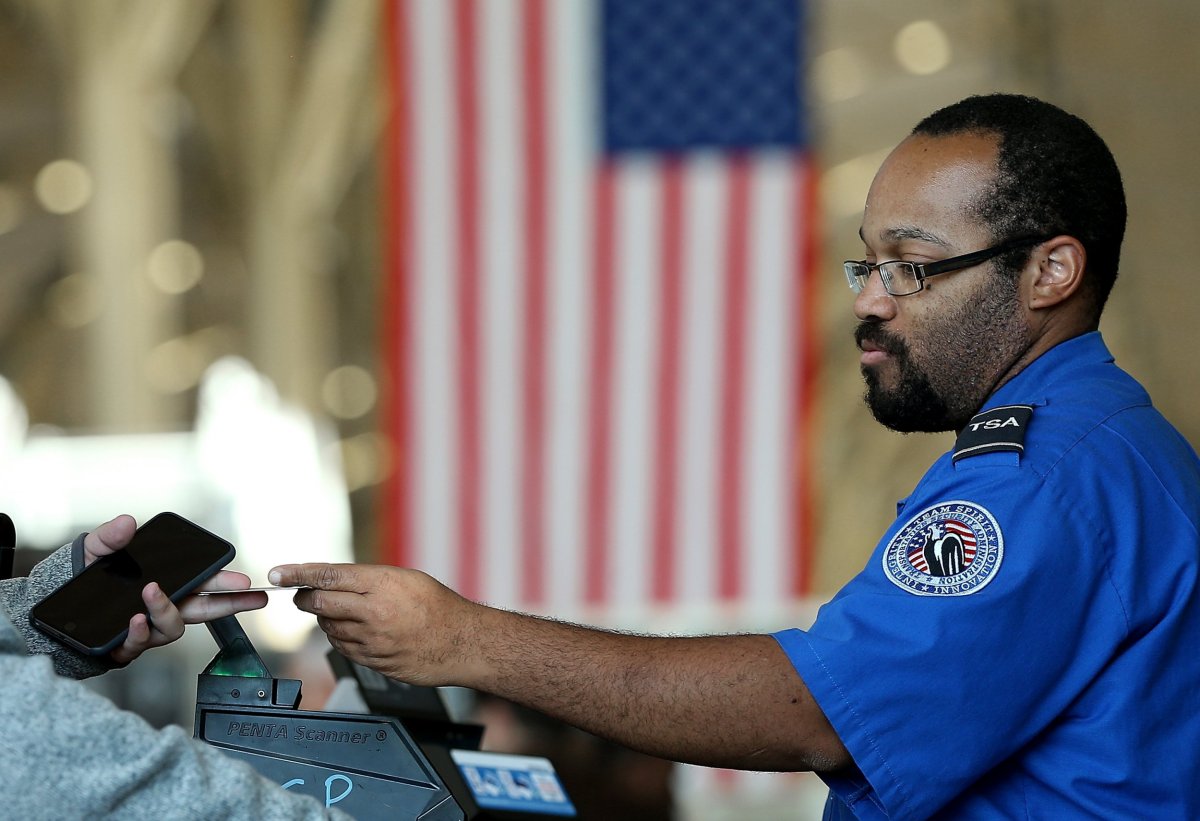
The sophisticated security apparatus the U.S. has developed since 9/11 has unquestionably helped prevent foreign terror attacks on American soil.
The cost has been more than $500 billion dollars on homeland security alone, according to a report from Brown University. All post-9/11 spending on wars, veterans and interest on all the spending has been close to $4 trillion.
That's a lot of money, but it's money Americans seem to want spent. The Pew Research Center reported in January that 76 percent of Americans said the government's top priority should be fighting terrorism. The agenda is disconnected from reality: The Cato Institute has shown that Americans have a much higher probability of dying from choking on food or even lightning strikes, than an attack carried out by a foreign terrorist.
Grade: B+ (because of the cost)
2. Domestic terrorism
The U.S. has prevented attacks on the scale of 9/11 in the past 16 years, but it's not completely immune to terrorism of a different sort.
Since September 11, 2001, 95 Americans have been killed by terrorists on U.S. soil — and every one of the murderers was a citizen or legal resident of the United States, according to the New America Foundation. The group also found that far-right hate groups are responsible for 68 deaths in the U.S. since 9/11. That figure includes the murder of Heather Heyer, allegedly killed by a white nationalist who plowed his car into a group of people protesting racism in Charlottesville in early August.
A separate report from the FBI and Department of Homeland Security from May found white supremacists "were responsible for 49 homicides in 26 attacks from 2000 to 2016…more than any other domestic extremist movement."
And a joint report published in June 2017 by the Investigative Fund at the Nation Institute, a nonprofit media center, and Reveal from the Center for Investigative Reporting, found right-wing extremists plotted or carried out almost twice as many terrorist attacks as Islamist extremists between January 2008 and the end of 2016.
Meanwhile, guns continue to be a constant threat, with roughly 10,000 deaths due to gun violence every year. In fact, more people die in a single year from gun violence than died from terror attacks since 1970, ABC News reported.
The Obama administration failed to rein in guns, and President Trump campaigned as a champion of gun owners. Instead, he has focused his domestic terrorism agenda on harsher immigration policies that, critics say, fan Islamophobia, which leads to Muslim-Americans becoming more likely to radicalize.
The Trump administration rescinded a $400,000 Department of Homeland Security-funded program to de-radicalize right-wing extremists, yet kept in place funding for programs focused on Islamic communities. But that's consistent with a president who blamed "many sides" for the violence that occurred in Charlottesville.
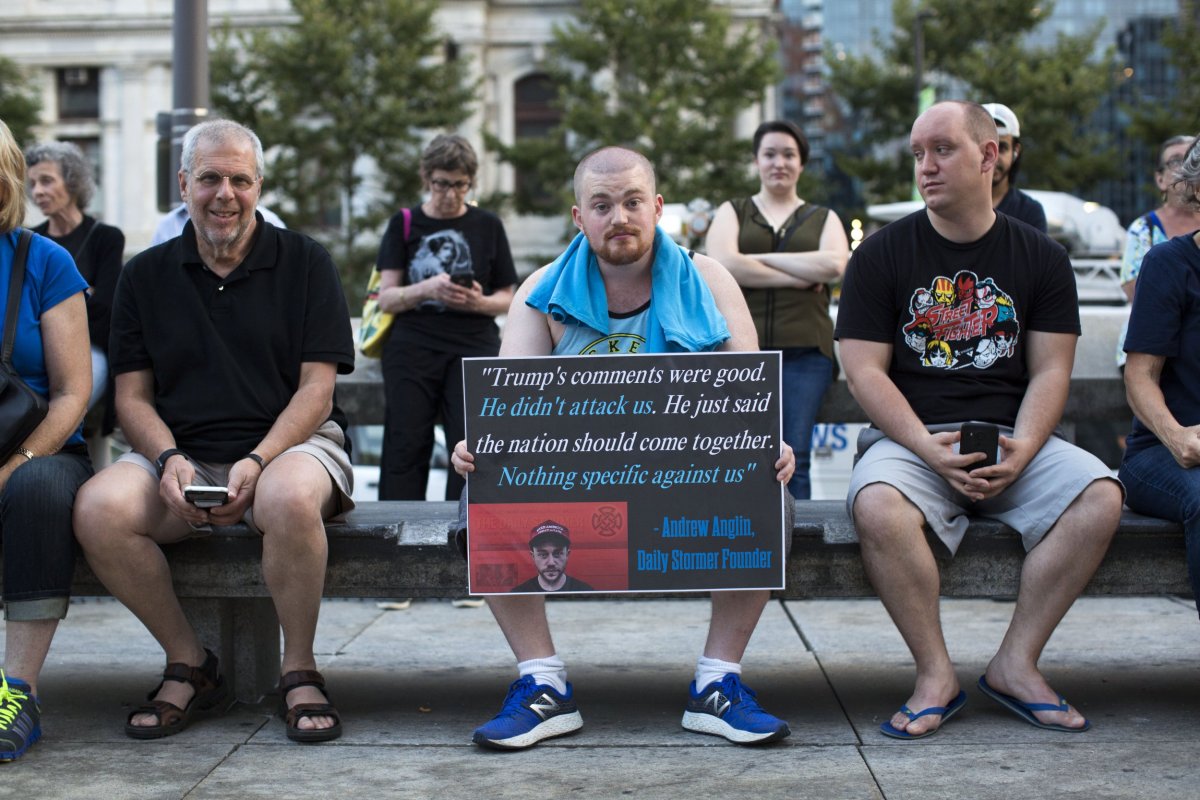
Grade: D
3. The Actual War on Terror
Sixteen years after 9/11, America has yet to win the so-called war on terror, which has already claimed nearly 7,000 U.S. troops.
Years after the initial invasions, American troops are still putting their lives on the line in Afghanistan and Iraq — and are also now engaged in the Syrian conflict.
The Taliban is also the strongest it's been in years, which helps explain why Trump recently decided to send more troops to Afghanistan.
More U.S. troops are headed to Afghanistan pic.twitter.com/0PGHQkkpli
— FOX & friends (@foxandfriends) September 1, 2017
Al-Qaeda has been unsuccessful in carrying out a repeat attack on the scale of 9/11, but it is still alive and well in many parts of the world.
Not to mention, America's invasion of Iraq destabilized the Middle East and led to the creation of ISIS (originally known as "Al-Qaeda in Iraq"), which has wreaked havoc in the Middle East and claimed responsibility for a slew of terror attacks in the West.
It's true the U.S. and allies have been fighting ISIS since August 2014 and have been very successful in diminishing its numbers and territory.
But, even once ISIS is kicked out of Iraq and Syria, which seems quite inevitable at this point, ISIS is unlikely to be completely eliminated. It's easy to kill terrorists, but it's hard to kill ideas or an ideology. ISIS has a strong online presence it has used to successfully radicalize Americans, including the perpetrator of the Orlando shooting.
The Internet is one of the greatest extremist recruitment tools. @NewAmericaISP on online radicalization after 9/11: https://t.co/ou8QsHqTEB
— New America (@NewAmerica) September 11, 2017
Many scholars feel America's actions during the war on terror and the U.S. military's continued presence in the Middle East have only served to increase enmity toward the U.S. and fuel jihadism.
Despite the nearly two decades and trillions of dollars spent on the war on terror, the U.S. has still not been able to prevent terrorism in the U.S. In some ways, the war has only resulted in generating more terrorism, especially in terms of the genesis story of ISIS.
Amid this seemingly endless war, hundreds of thousands of foreign civilians have been killed — 3,000 per year in Afghanistan — and terrorism has spread across the globe.
It would take at least 330 9/11 size attacks in the US to proportionality match the civilian death tolls in Iraq and Afghanistan since 2001.
— Dan Murphy (@bungdan) September 11, 2017
Grade: F
4. Civil liberties and human rights
In the wake of 9/11, the U.S. embraced policies that contradicted its purported values, including "enhanced interrogation techniques," or torture. Beyond alienating our allies and enraging our enemies, there is strong evidence that such inhumane practices put American lives in danger.
"Captured foreign fighters cite the torture and abuse at Abu Ghraib and Guantanamo as their main reason for coming to Iraq to fight," said a former Air Force interrogator, who supervised over 1,000 interrogations in Iraq.
Beyond torture, the U.S. government also engaged in the dubious mass surveillance of its citizens, which was revealed by the whistleblower (and now fugitive) Edward Snowden and ultimately deemed illegal. The National Security Agency's budget is classified, but it is estimated to be $10 billion per year. Taxpayers are paying a high price to spy on other taxpayers.
In the post-9/11 era, the U.S. has also utilized drones for surveillance and targeted killings against suspected terrorists, which has been a point of controversy both at home and abroad. Some critics say President Obama's expansion of drone warfare is itself a war crime, especially given that the strikes occur in countries with which the U.S. is not technically at war.
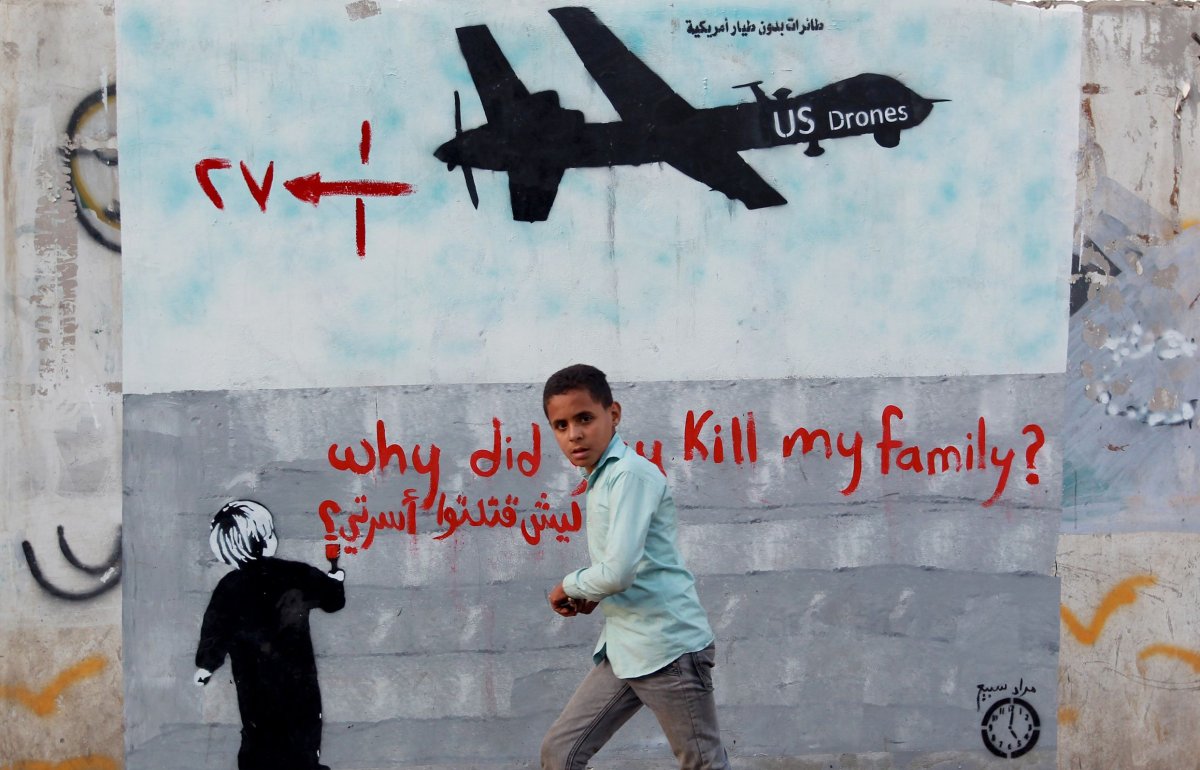
The Obama administration killed Anwar al-Awlaki, a U.S. citizen, with a drone in Yemen in 2011 — a killing that some members of Congress felt violated the Constitutional guarantee of due process.
"I don't doubt that Mr. Awlaki committed treason and deserved the most severe punishment," Senator Rand Paul said in 2014. "Under our Constitution, he should have been tried — in absentia, if necessary — and allowed a legal defense." Paul worried if one U.S. citizen could be targeted and killed in this way, it placed the country on a very slippery slope.
Several other Americans have been inadvertently killed by U.S. drone strikes as well, including one who was being held hostage Al-Qaeda.
Grade: D
Uncommon Knowledge
Newsweek is committed to challenging conventional wisdom and finding connections in the search for common ground.
Newsweek is committed to challenging conventional wisdom and finding connections in the search for common ground.
About the writer
To read how Newsweek uses AI as a newsroom tool, Click here.








